Perhaps Freyr could place the blame on his parents. Even if they were preoccupied with their guests, they should have noticed which twin had been brought to them. . .
Nova handed the still sleepy Freyr over to his mother, Ivithia. Freyr wrapped his tiny toddler arms around his mother’s neck and promptly fell back asleep.
“She was in the middle of a nap when I went to get her.” Nova explained. Usually, the fact that the child had fallen asleep so quickly after being woken up would have raised the possibility in Ivithia’s head that the child was probably her son—yet her mind was elsewhere that day.
The Silvius family wasn’t supposed to arrive until at least the twins’ birthday, which wasn’t until the following month. On top of that, they wanted to perform the engagement ritual on the same day that they arrived.
Ivithia understood that the head of Silvius was anxious about his only heir traveling to a completely different kingdom, but she didn’t appreciate the demanding tone her future son-in-law’s main escort had been taking towards her. It was as if the attendant was looking down on her. She might have been born to a lesser known noble family, but Alf, her husband, had the exactly same position in their kingdom that the head of Silvius held in the kingdom from which his convoy was visiting.
Ivithia huffed to herself, remembering, yet again, the tone that had been taken towards her. She glanced at the convoys again, looking them over judgmentally. The escort party seemed to be mainly composed of male soldiers.
The frustrated mother wondered if the foreign soldiers even knew how much work it took to prepare for an official engagement ritual. Sure, half the elements they needed were already acquired—since they had been planning this for almost two years—but there was emphasis on the fact that only half the elements had been fully prepared. There were so many symbolic items that they didn’t have yet; items Ivithia had desired to have at her first born daughter’s engagement ceremony. Furthermore, several necessary elements needed to be timed just right so that they would be fresh enough to be offered to the gods during the ritual portion of the ceremony. The servants already had their hands full trying to accommodate the sudden arrival of guests, and now those same guests also wanted the servants to rush around to find everything else they needed to perform the ceremony—and, apparently more importantly, the ritual.
Ivithia really wanted to give every single one of the bodyguards a harsh tongue-lashing. She had been doing her best at directing the bustling servants all day—with the help of her guardian goddess’ blessing, thankfully—and making sure the correct order of priorities was figured out and known by all, yet here were the members of the envoy, standing to one side of the temple since the moment they arrived.
If the visitors had at least offered any sort of assistance, maybe it wouldn't have been as bad—but instead the inadequate fools were all just huddled around their ward with a pompous aura to them. Even Alf had put his position to the side and had been helping run errands alongside their servants to get the ritual prepared. If someone of his status could do it, why couldn’t their incompetent guests?
Ivithia sighed for what felt like the hundredth time. She was just getting herself worked up again. Although she didn’t want to admit it, both parties involved with this arranged marriage needed the engagement ritual to go smoothly for the sake of each of their kingdoms.
Aleksei, her future son-in-law, had been born under the same star sign as Ivithia’s twin children—it wasn’t just any old star sign, however. The three of them had all been born under the constellation named after, and directly governed by, Celeste: the goddess of both the stars, and also the instinctual magic with which all creatures are born with. Being born under the sign of Celeste usually meant that the child would have a large capacity for learning magic, and that the types of magic that they ended up specializing in would come to them as easily as breathing.
Having all the current potential heirs of such potent magical bloodlines, such as the Frotleikr and the Silvius families, being born under such an auspicious star sign—and only a year apart as well—seemed like a good omen for the two kingdoms.
Within a month of the twins’ birth, there was talk of marriage between the two families. Ivithia was initially against the idea of sending one of her precious children so far away, but Alf had assured her that she wouldn’t have to say goodbye until the twins turned eighteen. At which point, if they didn’t accept the proposal and the twins hadn’t already gotten married and moved out, the siblings would both probably be thinking about marriage, or moving out, shortly anyway.
Alf also reminded Ivithia how important an alliance between the two kingdoms would be. The peaceful times they currently lived in were held in a tight balance that could shift at any moment. A marriage between the two children would lead not only to a strong ally, but had the potential to birth an even stronger bloodline—a bloodline that would be able to protect the people of future generations should the balance ever shift.
Alf additionally pointed out that, as long as the goddess Ianthe didn’t get involved in the engagement ritual, Aleksei and Freyja could call off the marriage, should they decide to. It would be relatively easy for them to break the engagement covenant when the time came—as long as not all three of the Triplet Deities responded.
There were three deities that would be called upon for blessings during the ritual: Sláine, the god of health, who usually had no interest in enforcing a covenant to receive his blessings; Lucretia, the goddess of wealth, who was usually willing to end a covenant if the contractee offered up enough coin or valuables to her; and, finally, Ianthe, the goddess of bonds, with whom it was nearly impossible to break a covenant with—at least not without dire consequences.
There were still a few instances recorded—where an engagement with her blessings was properly ended without her wrath being incurred—yet those records never went into detail on how those blessed couples had gotten her to end the engagement. Most surviving documents and stories were about the successful bonds she had blessed, or the wrath that they had incurred when one of the mortals had broken their covenant.
Ivithia wanted to ensure both of her children still had a choice when they came of age, though, so she wanted to hold onto her husband’s assurances that there would still be a choice in the matter when they were old enough to decide. Yet, the fears that something would go wrong were still creeping up on her—especially when the envoy had arrived so soon.
Ianthe hadn’t blessed an engagement ritual in centuries, though; so there shouldn’t have been any cause for alarm. Only a few noble families still even consistently called upon her during the ritual. Of those who did, they only did so for tradition's sake. No one actually expected Ianthe to appear again— let alone to bless an engagement ceremony.
Ivithia turned her attention back to her child in her arms. She had commissioned various items for her daughter to wear during her engagement ceremony, with each item representing different things that were important customs in their world, but only the white dress with small dark blue runes embroidered on the hem had been finished in time.
Ivithia was relieved that the dress had been the one article to be finished, since it was one of the most important adornments she had commissioned—even if it was ever so slightly on the large side at that moment. The dress was second only to whatever trinket or piece of jewelry was selected to represent the covenant with whichever deity answered. The runes on the dress represented the well wishes of the family of the bride, and channeled whatever blessings the family wished to impart upon the union. Ivithia was glad she had her mother, the twin’s grandmother, begin embroidering the white fabric back when the decision for the arranged marriage had been finalized.
Ivithia’s mother was a powerful witch in the forest coven where Ivithia had grown up. Considering the main deity of the witches was Ianthe—who was not only the goddess of bonds but also the goddess of rituals and the threads of fate—Ivithia’s mother specialized in the runic magic that was used in various rituals. It was unquestionable, then, that she would be the one to embroider the runes for Freyja’s dress. Then, once the fabric was embroidered, it only had to be sent to the seamstress.
The other accessories, however, had to be crafted by various top notch craftsmen that were blessed by both the greater and lesser deities of arts; the craftsmen therefore specialized in magic that surrounded the crafting of their wares. If it had been any other family it wouldn’t have been as important to have the items crafted by the best of the best—but this was the Frotleikr family. Freyja’s engagement was supposed to set a precedent for her generation’s engagement ceremonies.
Ivithia sighed yet again. Perhaps Freyja could wear the accessories for the wedding when she turned eighteen. Alternatively, Ivithia could have Freyr wear them—whenever they decided on who to engage him with, that is. Either way, she didn't have time to dwell on what now couldn’t be.
The new maid, Nova, had done a decent job picking replacement pieces. If Ivithia remembered correctly, Nova was recommended by her sister Nox, who had been a consistent help overnight for the past two years. Ivithia made a mental note to herself to have Alta, the head maid, slip the sisters a little extra compensation in their next set of wages, whenever it was that they were going to be paid next.



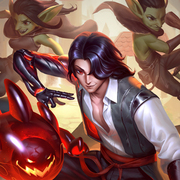
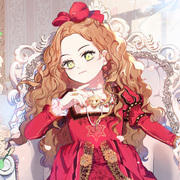
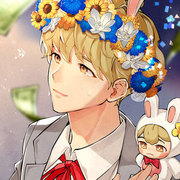

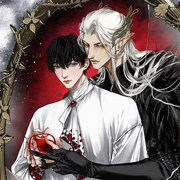


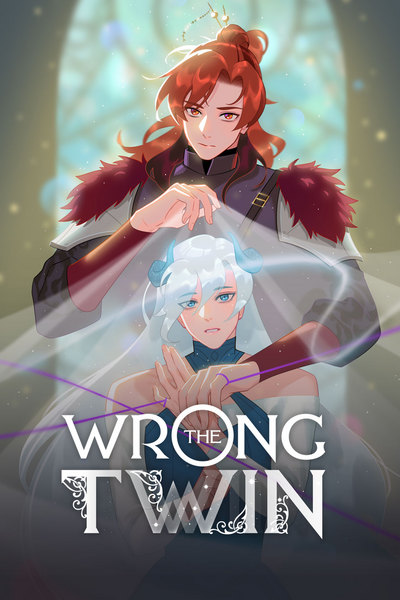
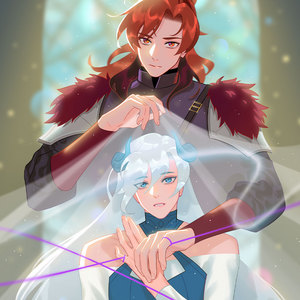
Comments (4)
See all